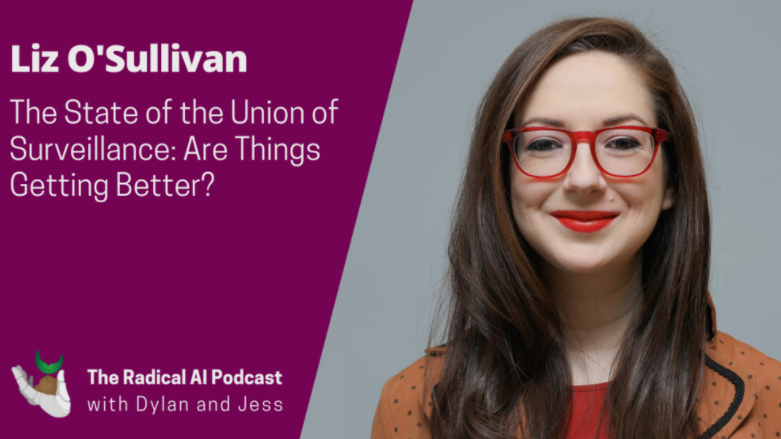
ΑΙhub.org
Radical AI podcast: featuring Liz O’Sullivan

Hosted by Dylan Doyle-Burke and Jessie J Smith, Radical AI is a podcast featuring the voices of the future in the field of artificial intelligence ethics. In this episode Jess and Dylan chat to Liz O’Sullivan about the state of surveillance in the world today.
The state of the union of surveillance: are things getting better? with Liz O’Sullivan
What should you know about the state of surveillance in the world today? What can we do as consumers to stop unintentionally contributing to surveillance? The facial recognition industry had a reckoning after the murder of George Floyd – are things getting better?
To answer these questions we welcome Liz O’Sullivan to the show.
Liz O’Sullivan is the Surveillance Technology Oversight Project’s technology director. She is also the co-founder and vice president of commercial operations at Arthur AI, an AI explainability and bias monitoring startup. Liz has been featured in articles on ethical AI in the NY Times, The Intercept, and The Register, and has written about AI for the ACLU and The Campaign to Stop Killer Robots. She has spent 10 years in tech, mainly in the AI space, most recently as the head of image annotations for the computer vision startup, Clarifai.
Full show notes for this episode can be found at Radical AI.
Listen to the episode below:
About Radical AI:
Hosted by Dylan Doyle-Burke, a PhD student at the University of Denver, and Jessie J Smith, a PhD student at the University of Colorado Boulder, Radical AI is a podcast featuring the voices of the future in the field of Artificial Intelligence Ethics.
Radical AI lifts up people, ideas, and stories that represent the cutting edge in AI, philosophy, and machine learning. In a world where platforms far too often feature the status quo and the usual suspects, Radical AI is a breath of fresh air whose mission is “To create an engaging, professional, educational and accessible platform centering marginalized or otherwise radical voices in industry and the academy for dialogue, collaboration, and debate to co-create the field of Artificial Intelligence Ethics.”
Through interviews with rising stars and experts in the field we boldly engage with the topics that are transforming our world like bias, discrimination, identity, accessibility, privacy, and issues of morality.
To find more information regarding the project, including podcast episode transcripts and show notes, please visit Radical AI.










